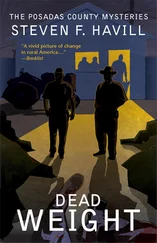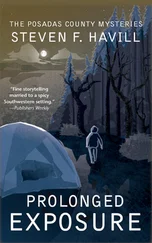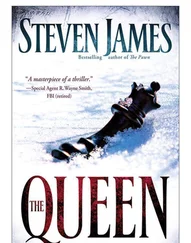Steven Dubner - Freakonomics
Здесь есть возможность читать онлайн «Steven Dubner - Freakonomics» весь текст электронной книги совершенно бесплатно (целиком полную версию без сокращений). В некоторых случаях можно слушать аудио, скачать через торрент в формате fb2 и присутствует краткое содержание. Жанр: Старинная литература, на русском языке. Описание произведения, (предисловие) а так же отзывы посетителей доступны на портале библиотеки ЛибКат.
- Название:Freakonomics
- Автор:
- Жанр:
- Год:неизвестен
- ISBN:нет данных
- Рейтинг книги:3 / 5. Голосов: 1
-
Избранное:Добавить в избранное
- Отзывы:
-
Ваша оценка:
- 60
- 1
- 2
- 3
- 4
- 5
Freakonomics: краткое содержание, описание и аннотация
Предлагаем к чтению аннотацию, описание, краткое содержание или предисловие (зависит от того, что написал сам автор книги «Freakonomics»). Если вы не нашли необходимую информацию о книге — напишите в комментариях, мы постараемся отыскать её.
Freakonomics — читать онлайн бесплатно полную книгу (весь текст) целиком
Ниже представлен текст книги, разбитый по страницам. Система сохранения места последней прочитанной страницы, позволяет с удобством читать онлайн бесплатно книгу «Freakonomics», без необходимости каждый раз заново искать на чём Вы остановились. Поставьте закладку, и сможете в любой момент перейти на страницу, на которой закончили чтение.
Интервал:
Закладка:
Sandman is an expert who works both sides of the aisle. One day he might help a group of environmentalists expose a public health hazard. His client the next day could be a fast-food CEO trying to deal with an E. coli outbreak. Sandman has reduced his expertise to a tidy equation: Risk = hazard + outrage. For the CEO
with the bad hamburger meat, Sandman engages in “outrage reduction”; for the environmentalists, it’s “outrage increase.”
Note that Sandman addresses the outrage but not the hazard itself. He concedes that outrage and hazard do not carry equal weight in his risk equation. “When hazard is high and outrage is low, people underreact,” he says. “And when hazard is low and outrage is high, they overreact.”
So why is a swimming pool less frightening than a gun? The thought of a child being shot through the chest with a neighbor’s gun is gruesome, dramatic, horrifying—in a word, outrageous. Swimming pools do not inspire outrage. This is due in part to the familiarity factor. Just as most people spend more time in cars than in airplanes, most of us have a lot more experience swimming in pools than shooting guns. But it takes only about thirty seconds for a child to drown, and it often happens noiselessly. An infant can drown in water as shallow as a few inches. The steps to prevent drowning, meanwhile, are pretty straightforward: a watchful adult, a fence around the pool, a locked back door so a toddler doesn’t slip outside unnoticed.
If every parent followed these precautions, the lives of perhaps four hundred young children could be saved each year. That would outnumber the lives saved by two of the most widely promoted inventions in recent memory: safer cribs and child car seats. The data show that car seats are, at best, nominally helpful. It is certainly safer to keep a child in the rear seat than sitting on a lap in the front seat, where in the event of an accident he essentially becomes a projectile. But the safety to be gained here is from preventing the kids from riding shotgun, not from strapping them into a $200 car seat. Nevertheless, many parents so magnify the benefit of a car seat that they trek to the local police station or firehouse to have it installed just right. Theirs is a gesture of love, surely, but also a gesture of what might be called obsessive parenting. (Obsessive parents know who they are and are generally proud of the fact; non-obsessive parents also know who the obsessives are and tend to snicker at them.)
Most innovations in the field of child safety are affiliated with—shock of shocks—a new product to be marketed. (Nearly five million car seats are sold each year.) These products are often a response to some growing scare in which, as Peter Sandman might put it, the outrage outweighs the hazard. Compare the four hundred lives that a few swimming pool precautions might save to the number of lives saved by far noisier crusades: child-resistant packaging (an estimated fifty lives a year), flame-retardant pajamas (ten lives), keeping children away from airbags in cars (fewer than five young children a year have been killed by airbags since their introduction), and safety draw-strings on children’s clothing (two lives).
Hold on a minute, you say. What does it matter if parents are manipulated by experts and marketers? Shouldn’t we applaud any effort, regardless of how minor or manipulative, that makes even one child safer? Don’t parents already have enough to worry about? After all, parents are responsible for one of the most awesomely important feats we know: the very shaping of a child’s character. Aren’t they?
The most radical shift of late in the conventional wisdom on parenting has been provoked by one simple question: how much do parents really matter?
Clearly, bad parenting matters a great deal. As the link between abortion and crime makes clear, unwanted children—who are disproportionately subject to neglect and abuse—have worse outcomes than children who were eagerly welcomed by their parents. But how much can those eager parents actually accomplish for their children’s sake?
This question represents a crescendo of decades’ worth of research. A long line of studies, including research into twins who were separated at birth, had already concluded that genes alone are responsible for perhaps 50 percent of a child’s personality and abilities.
So if nature accounts for half of a child’s destiny, what accounts for the other half? Surely it must be the nurturing—the Baby Mozart tapes, the church sermons, the museum trips, the French lessons, the bargaining and hugging and quarreling and punishing that, in toto, constitute the act of parenting. But how then to explain another famous study, the Colorado Adoption Project, which followed the lives of 245 babies put up for adoption and found virtually no correlation between the child’s personality traits and those of his adopted parents? Or the other studies showing that a child’s character wasn’t much affected whether or not he was sent to day care, whether he had one parent or two, whether his mother worked or didn’t, whether he had two mommies or two daddies or one of each?
These nature-nurture discrepancies were addressed in a 1998 book by a little-known textbook author named Judith Rich Harris. The Nurture Assumption was in effect an attack on obsessive parenting, a book so provocative that it required two subtitles: Why Children Turn Out the Way They Do and Parents Matter Less than You Think and Peers Matter More. Harris argued, albeit gently, that parents are wrong to think they contribute so mightily to their child’s personality. This belief, she wrote, was a “cultural myth.” Harris argued that the top-down influence of parents is overwhelmed by the grassroots effect of peer pressure, the blunt force applied each day by friends and school-mates.
The unlikeliness of Harris’s bombshell—she was a grandmother, no less, without PhD or academic affiliation—prompted both wonder and chagrin. “The public may be forgiven for saying, ‘Here we go again,’” wrote one reviewer. “One year we’re told bonding is the key, the next that it’s birth order. Wait, what really matters is stimulation. The first five years of life are the most important; no, the first three years; no, it’s all over by the first year. Forget that: It’s all genetics!”
But Harris’s theory was duly endorsed by a slate of heavyweights. Among them was Steven Pinker, the cognitive psychologist and bestselling author, who in his own book Blank Slate called Harris’s views “mind-boggling” (in a good way).
“Patients in traditional forms of psychotherapy while away their fifty minutes reliving childhood con-flicts and learning to blame their unhappiness on how their parents treated them,” Pinker wrote. “Many biographies scavenge through the subject’s childhood for the roots of the grown-up’s tragedies and triumphs.
‘Parenting experts’ make women feel like ogres if they slip out of the house to work or skip a reading of Goodnight Moon. All these deeply held beliefs will have to be rethought.”
Or will they? Parents must matter, you tell yourself. Besides, even if peers exert so much influence on a child, isn’t it the parents who essentially choose a child’s peers? Isn’t that why parents agonize over the right neighborhood, the right school, the right circle of friends?
Still, the question of how much parents matter is a good one. It is also terribly complicated. In determining a parent’s influence, which dimension of the child are we measuring: his personality? his school grades? his moral behavior? his creative abilities? his salary as an adult? And what weight should we assign each of the many inputs that affect a child’s outcome: genes, family environment, socioeconomic level, schooling, discrimination, luck, illness, and so on?
Читать дальшеИнтервал:
Закладка:
Похожие книги на «Freakonomics»
Представляем Вашему вниманию похожие книги на «Freakonomics» списком для выбора. Мы отобрали схожую по названию и смыслу литературу в надежде предоставить читателям больше вариантов отыскать новые, интересные, ещё непрочитанные произведения.
Обсуждение, отзывы о книге «Freakonomics» и просто собственные мнения читателей. Оставьте ваши комментарии, напишите, что Вы думаете о произведении, его смысле или главных героях. Укажите что конкретно понравилось, а что нет, и почему Вы так считаете.











